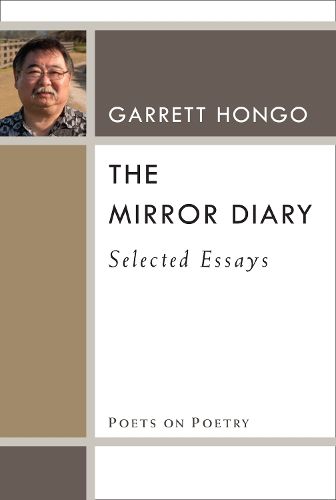Readings Newsletter
Become a Readings Member to make your shopping experience even easier.
Sign in or sign up for free!
You’re not far away from qualifying for FREE standard shipping within Australia
You’ve qualified for FREE standard shipping within Australia
The cart is loading…






Garrett Hongo makes a literary inquiry into the century-long history of Japanese Americans, particularly in Hawaii and California, seeking answers to questions regarding the mosaics of American identity in the contexts of diaspora and postmodernism. His essays address issues in contemporary poetry and Asian American literature, attest to his studies of poets of the Chinese T'ang-as well as American poets Walt Whitman and Charles Olson, chronicle his journalistic coverage of the politics of race and Congressional legislation regarding the Japanese American internment during World War II, and describe what he considers his own cultural inheritance and literary antecedents. There are essays on controversies and contestations in Asian American literature, paeans to the Hawaiian landscape, and a welcoming, Whitmanic address to immigrants newly arrived in America. He explains free-verse prosody by talking about the great jazz musician John Coltrane. He praises his contemporaries-poets David Mura, Edward Hirsch, and Mark Jarman-and acknowledges his mentors Bert Meyers and Charles Wright. What emerges is a poet fully engaged with contemporary politics as well as poetics and committed to traditional learning in diverse traditions.
The Mirror Diary tracks the formation of a learned consciousness regarding multiple and sometimes competing influences from literary tradition, regional and ethnic histories, and the quest for an original poetic voice. Throughout, Hongo’s focus is on a literary response to issues and events, a considered meditative and decidedly poetic language informed by tradition and reflective of contemporary experience. He asks the question How shall I sing of this body?, burdened by a painful history and yet inspired by the beauties of language and the moral values of justice and recognition.
$9.00 standard shipping within Australia
FREE standard shipping within Australia for orders over $100.00
Express & International shipping calculated at checkout
Garrett Hongo makes a literary inquiry into the century-long history of Japanese Americans, particularly in Hawaii and California, seeking answers to questions regarding the mosaics of American identity in the contexts of diaspora and postmodernism. His essays address issues in contemporary poetry and Asian American literature, attest to his studies of poets of the Chinese T'ang-as well as American poets Walt Whitman and Charles Olson, chronicle his journalistic coverage of the politics of race and Congressional legislation regarding the Japanese American internment during World War II, and describe what he considers his own cultural inheritance and literary antecedents. There are essays on controversies and contestations in Asian American literature, paeans to the Hawaiian landscape, and a welcoming, Whitmanic address to immigrants newly arrived in America. He explains free-verse prosody by talking about the great jazz musician John Coltrane. He praises his contemporaries-poets David Mura, Edward Hirsch, and Mark Jarman-and acknowledges his mentors Bert Meyers and Charles Wright. What emerges is a poet fully engaged with contemporary politics as well as poetics and committed to traditional learning in diverse traditions.
The Mirror Diary tracks the formation of a learned consciousness regarding multiple and sometimes competing influences from literary tradition, regional and ethnic histories, and the quest for an original poetic voice. Throughout, Hongo’s focus is on a literary response to issues and events, a considered meditative and decidedly poetic language informed by tradition and reflective of contemporary experience. He asks the question How shall I sing of this body?, burdened by a painful history and yet inspired by the beauties of language and the moral values of justice and recognition.